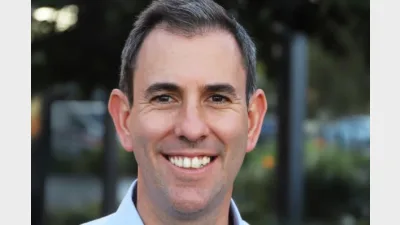Ready for retirement?
One of the hardest tasks confronting financial planners is convincing people they simply don’t have enough money put aside to provide for a long and comfortable retirement.
And with one of our most profligate generations — the baby boomers — approaching retirement, it is a task that is increasingly demanding of planners that they not only deliver appropriate and sustainable financial strategies but also adopt the role of lifestyle counsellor.
Given their preference, most planners would like to have sufficient time to at least carry out some remediation work — to develop strategies for clients capable of boosting their savings and asset accumulation profile well ahead of them leaving the workforce.
All too often, however, they are confronted with clients who, at a virtual five minutes to retirement midnight, have few assets, inadequate superannuation and only a slim grasp of precisely how much money they will need to retire comfortably.
And many baby boomers cannot rely on the likelihood of an inheritance to make up the shortfall between their retirement savings and the reality of what they will actually need.
As the recentAMP/NATSEM Income and Wealth Report made clear — Australians are living longer and, because of that, their ability to provide a windfall inheritance to their children is being eroded by the need to fund their own, longer retirement years.
The AMP/NATSEM Report said baby boomers’ parents (born between 1920 and 1940) are expected to live more than eight years longer than the baby boomers’ grandparents (born around 1891).
What is more, the research indicated there is a growing disinclination on the part of parents to make sacrifices to ensure they leave a sizeable inheritance to their children.
All these factors are combining to confront financial planners with increasing numbers of clients who have not made sufficient provision for a comfortable self-funded retirement and for whom the time for doing so is fast running out.
And with the clock counting down for many baby boomers, some of the best advice being issued to clients is that they should simply stay in the work force longer, delaying their retirement until they can actually afford to fund it.
Deborah Kent of Integra Financial Services is someone who knows what it is like to sit down with clients and deliver the hard news that, frankly, they are going to have to make some sacrifices if they want enough money for a comfortable retirement.
Kent says that there’s a large element of lifestyle counselling in dealing with the delivery of such messages — usually associated with the reining in of spending and extravagant lifestyle choices.
“The penny doesn’t usually drop with these people until they’re actually thinking about retirement — in their mid-to-late 40s,” she says. “And then it’s a question of sitting down with them, looking at their budgets, determining where they’re over-spending and then formulating a savings plan.”
Kent says very often she opts for a forced savings plan entailing increasing superannuation contributions and establishing savings plans via managed funds at the same time as seeking to increase contributions towards paying off a mortgage.
She says where people are facing significant challenges she seeks to instigate six monthly reviews.
“You’ve got to force them to chop out quite a bit of expenditure and therefore you’ve got to review things more frequently to ensure that the goals are going to be met,” Kent says.
She says single women often represent a significant challenge because, while they may have been earning large incomes, they’ve not necessarily invested in property or contributed significantly to superannuation.
Money Management’sFinancial Planner of the Year, Robert Kiddell is one of those who believes that a longer working life represents at least part of the answer to meeting the challenge of inadequate retirement savings.
He says it is not uncommon for him to recommend to clients that instead of taking that overseas or around Australia trip when they retire, that they bring it forward and take it as part of their long-service-leave before resuming work and building up further retirement savings.
Kiddell also suggests that people follow the example of Prime Minister John Howard and work beyond 65, even if it is only on a part-time, three or four days a week, basis.
“It really is an option and a way of ensuring that you keep building your retirement income,” he says.
It is a view supported by Bruce Gingell ofLFG Services, who says if people don’t want to use up their capital at a time when down-markets have been reducing returns on investment income they should consider taking up part-time work.
He agrees planners need to take on a counselling role in terms of lifestyles for those who have made insufficient provision for their retirement and that there’s a real need to spend more time with such people to deliver guidance and explain their options.
Gingell says that for those still approaching retirement, a longer period in the work force represents a real option, particularly in circumstances where the down-market has placed a brake on superannuation growth.
He also makes the point that for people on allocated pensions, the current down-market has caused some real concerns because they have been watching their nest eggs dwindling.
“It’s not surprising they’re concerned because they see the reduction in their capital being compounded by the negative returns generated by investments,” he says.
Peter Nonnenmacher ofHillrossalso sees a longer period in the work force as a valid option for those who’ve made insufficient provision for their retirement and argues that it’s a case of sitting down with clients, looking at their budgets and making clear what their lifestyles are costing.
“It is a matter of getting people to understand where they stand and what there options are,” he says.
Nonnenmacher says the sooner people understand their situation, the sooner it can be addressed and options explored.
Among those options, he says, is the sale of family homes to fund ongoing retirement.
He says if people own property in, say, Sydney then the option exists to sell that property, buy more cheaply elsewhere and live off the remainder.
Recommended for you
Treasurer Jim Chalmers has handed down his third budget, outlining the government’s macroeconomic forecasts and changes to superannuation.
Online investment adviser and fund manager Stockspot has introduced Stockspot Super, Australia’s first 'ETF only' superannuation product. superannuation product.
ASIC has called on superannuation funds to improve their oversight of advice fee deductions following an investigation of 10 trustees that found $990 million was charged in one year.
With just 30 per cent of Australians knowing their superannuation balance to the nearest $1,000, Findex has emphasised the role of financial advice in addressing the critical super knowledge gap.














